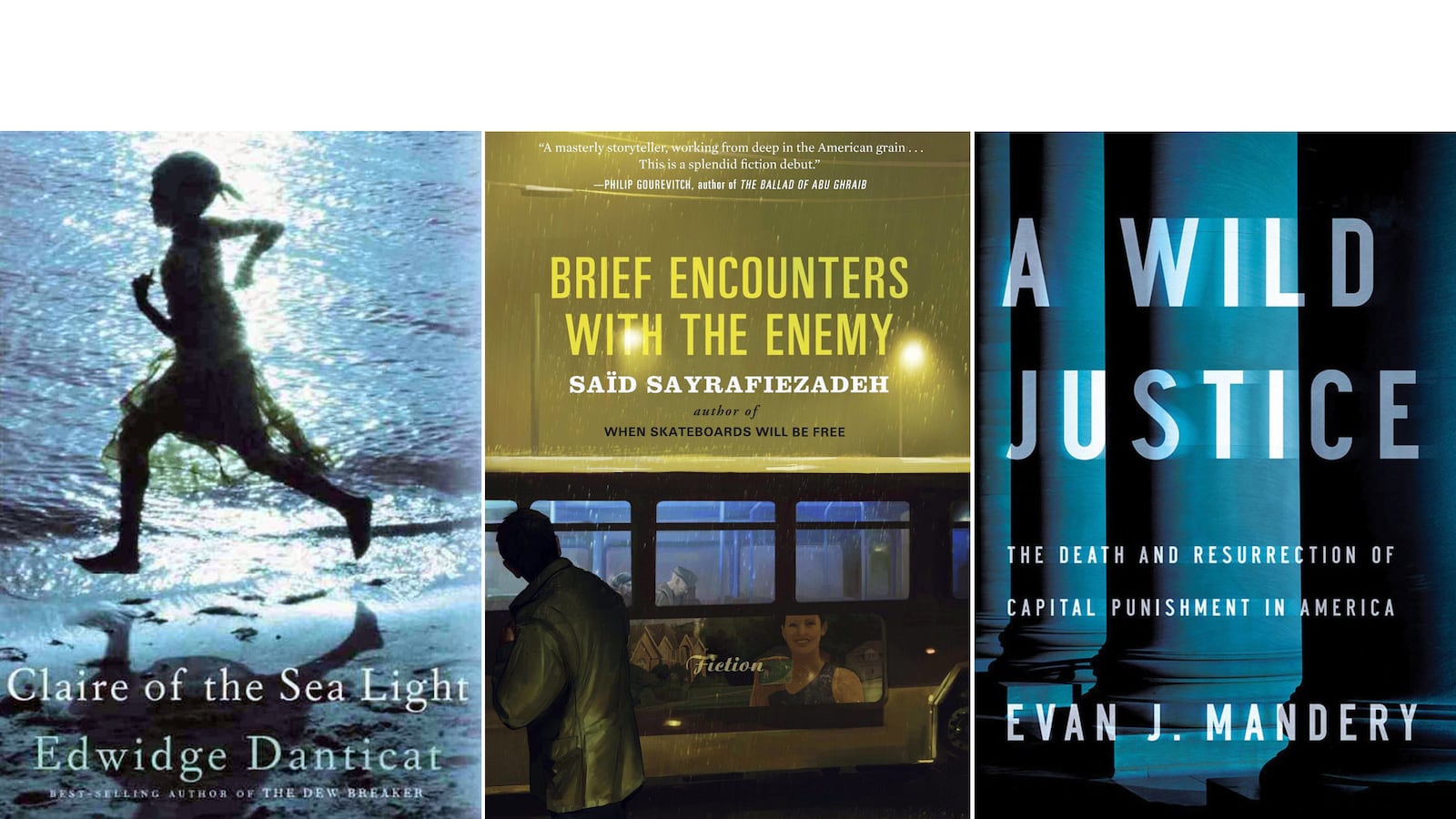By Edwidge Danticat
A child disappears from a Haitian village, showcasing how the island connects with grief in startling ways.

Danticat’s latest novel is about a child who disappears from a Haitian village; as a character, she only flickers among the sadder stories of her father and the town’s residents, all of whom are distraught by her absence. Like Jane Campion’s Top of the Lake, a television series similarly about a missing child and the traumas of those that know her, Claire of the Sea Light is a mood piece about a place (Haiti) and a feeling (grief) and how the two connect in startling ways. Danticat’s style is hypnotic, an intoxicating blend of memory and linear narrative. Her yen for juxtaposition of pretty and ugly, water and tar, public and private, can be seen in the smallest moments. At one point, a character is driving along the sea, past people trying to sell fried food and cellphone chargers to others in stopped cars, and he notices “moss-blanketed marshes” and “funnel-shaped mountains.” This scenery “reminded him how pretty Ville Rose still was.” Then he sees a line of bungalows where prostitutes work and live. Moments of natural beauty, unadorned by need and not yet ravaged by poverty, flash briefly and slip away in Danticat’s Haiti; Claire is a literary mourning of this kind of slippage, and a celebration of its power.
Brief Encounters With the Enemy
By Saïd Sayrafiezadeh
A funny and surprising collection of stories about odd characters in a desolate, unnamed American city.

Sayrafiezadeh’s first story collection plays upon themes of boredom, claustrophobia, and romance. All the stories take place in the same desolate, barren America, in an unnamed city that yawns with indifference at its citizens. There is a sinister quality to the prose of Sayrafiezadeh. Used to describe banal settings like grocery stores and carnival rides, or unremarkable hazards of everyday life like bus strikes and co-worker jealousy, Sayrafiezadeh’s simple style can fool you into thinking that his struggling narrators are plain and unassuming. They are anything but. In these stories, cripples are moved to tears by old movies on TV seconds before urinating into a pot in front of houseguests. A boss comes onto his employee via a several-pages-long letter about E.T. Sayrafiezadeh is funny, in other words, and surprising. Each story compels you to read the next, and no character escapes unscathed. Moral ambiguity is Sayrafiezadeh’s strength as a writer. When these characters triumph, the reader must call into question whether the triumph should have occurred at all.
By Amy Grace Loyd
A widow obsessively observes an apartment block and the sexual secrets of its tenants.

In his blurb on Loyd’s debut novel, Ron Hansen calls attention to the Rear Window conceit of the book’s story: a traumatized narrator obsessively observes an apartment block and its inhabitants, who are all invariably hiding something. In the case of The Affairs of Others, the narrator, Celia Cassill, is a widow, not a journalist in a cast, and her life has been simplified more out of compulsive need than doctor’s orders. The loss of her husband is too hard to bear and harder still to move on from, so she becomes interested in the secrets of her tenants. If there is anything cinematic that resembles Loyd’s debut, it is the luscious melodrama of Douglas Sirk; this is a book filled with larger-than-life feelings, raw nerves, and sexual intrigue. Small details of everyday life become fraught with as much passion as stolen moments in presumed privacy. “Sex,” Celia says after overhearing tenants going at it, “could fragment into clichés.” But Loyd would like to make the case that it wouldn’t. Remarkably, she creates a dramatic tension that gives the most domestic of concerns a lusty weight because of what they mask—betrayal, love, and violence.
By Evan J. Mandery
The story of how the Supreme Court outlawed the death penalty, then reversed the decision just four years later.

If someone described a book about the Supreme Court’s decisions to strike down and then reinstate the death penalty as thrilling, would you believe her? You should; that’s exactly what A Wild Justice is. Reading it, you get swept up in the details of the court cases that determined capital punishment’s upheaval and rapid resurrection over the course of two decades. This is thanks to Mandery’s skill for whittling down complex legal situations to punchy play-by-plays. This book, after all, begins with the sentence, “Alan Dershowitz was sweating.” Mandery knows when to be pithy and when to go long, like in passages about the subtleties of memoranda. If you’re not already well versed in the history of the Supreme Court, the fact that such a thing happened at all—that the court ruled state executions unconstitutional, and then reversed this decision only four years later—is unfathomable. A Wild Justice fills you in, step by step, without ever boring you.
By Kenneth J. Winkle
A social history of the U.S. capital as it was flooded with the injured and the aggrieved of the Civil War.

By last count there were over 16,000 books about Abraham Lincoln. The number seems to grow every year, and to the list we will add one more, a sprawling social annals that is equally an urban history of our nation’s capital and an insightful look at the most-written-about president of the United States. Winkle writes that Washington, D.C., was “a microcosm of the Civil War,” and this is why the subject of the nation’s capital during Lincoln’s stay there—which includes, interestingly, his one term as a congressman—fascinates and sustains the historian for over 400 pages. He argues that the policies Lincoln would pursue throughout the war began with the theater of the capital, the drama of a war community filled and flooded with the injured and the aggrieved. Perhaps to no serious Lincoln fan’s surprise (Winkle has won many awards), this is the work of an impressive researcher and writer with a command of both social and literary history. He quotes the diaries and letters of Whitman and Dickens as easily as he cites population statistics and tales from the city’s ill-equipped medical facilities. The level of detail in Lincoln’s Citadel is remarkable; one might think the subject of Lincoln at war would have been exhausted by now, but Winkle gives new life to the topic.






